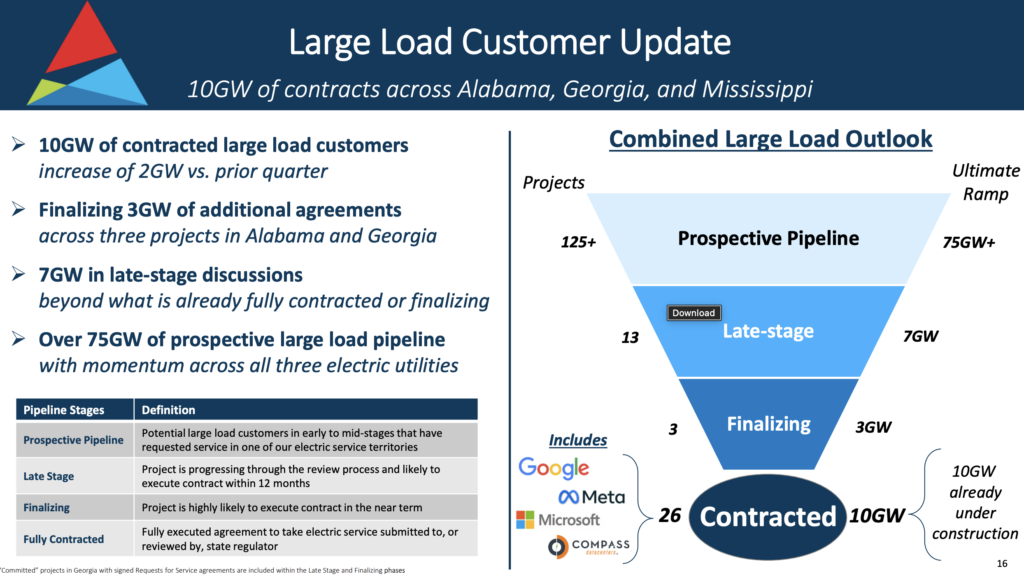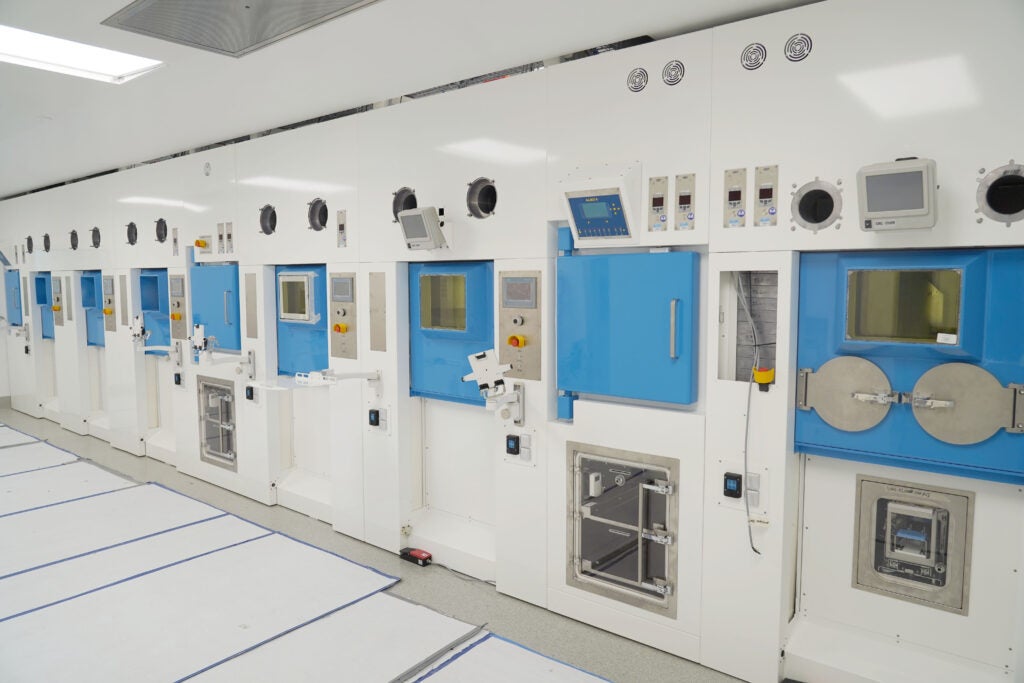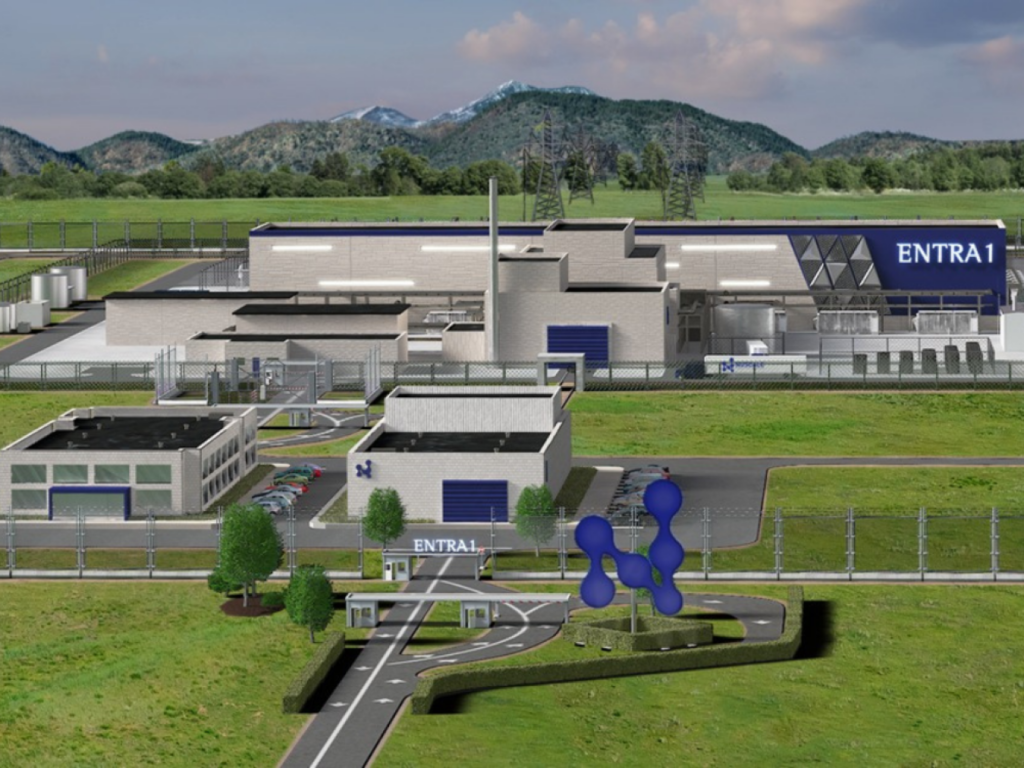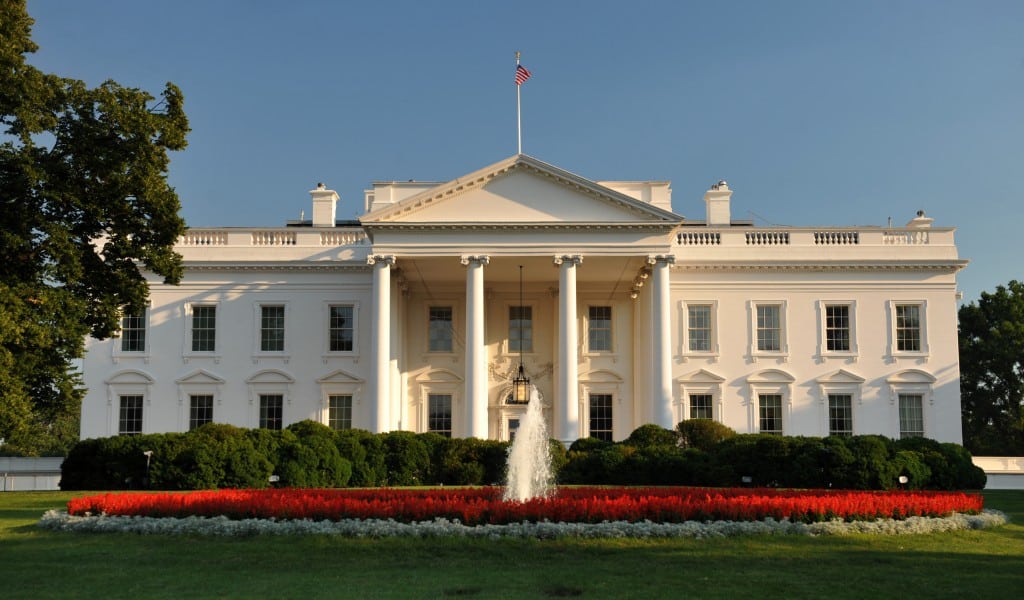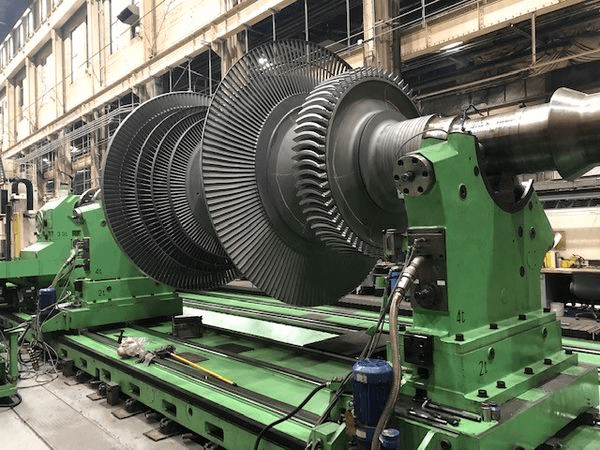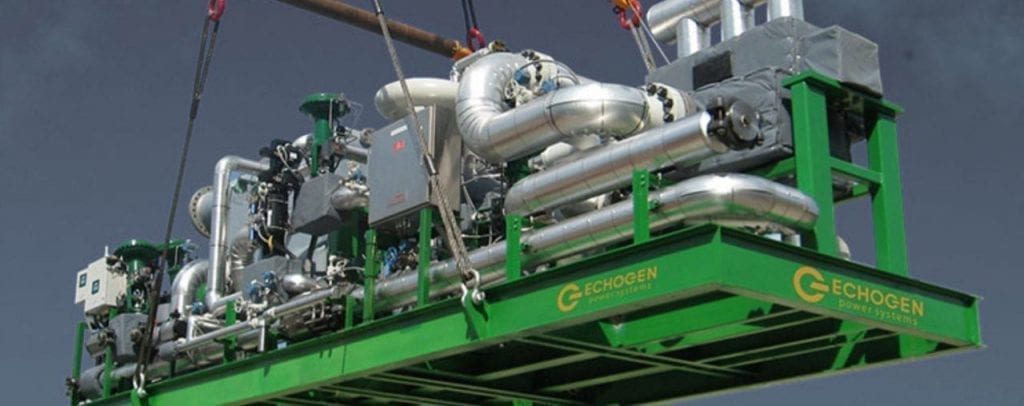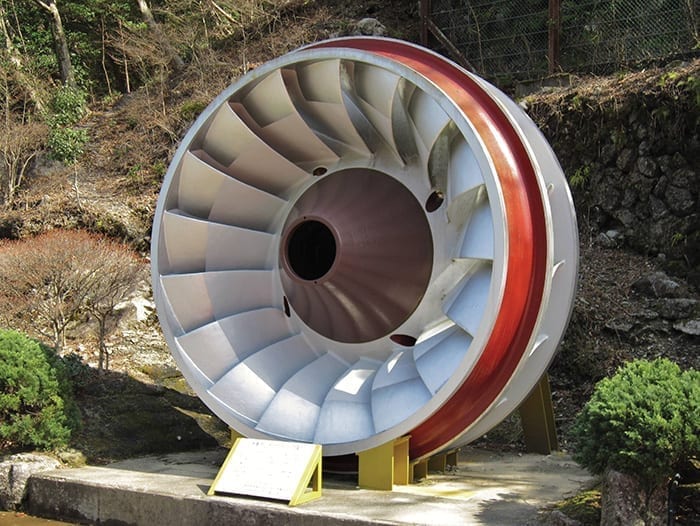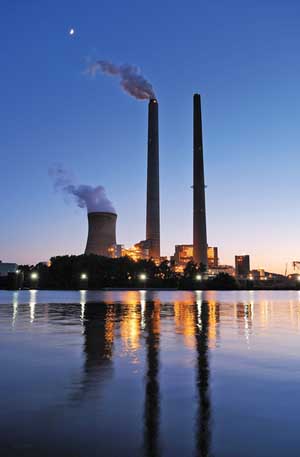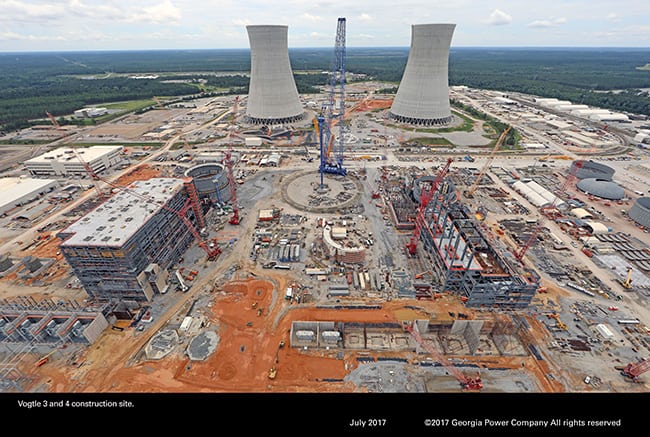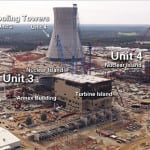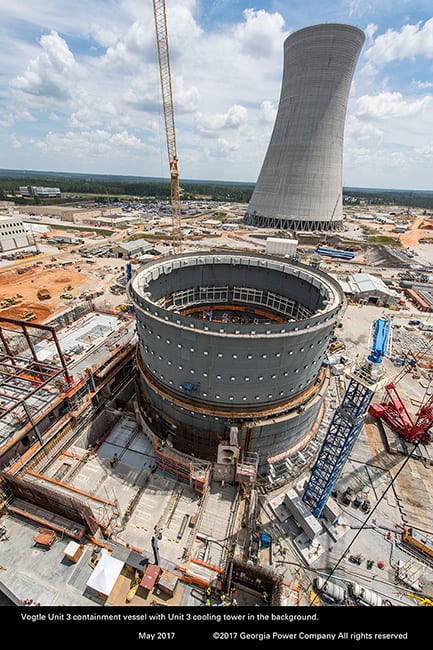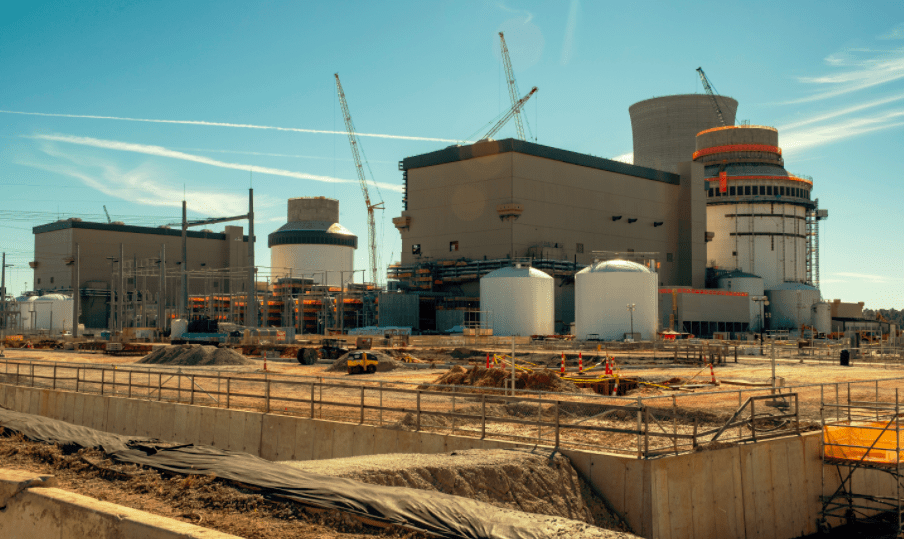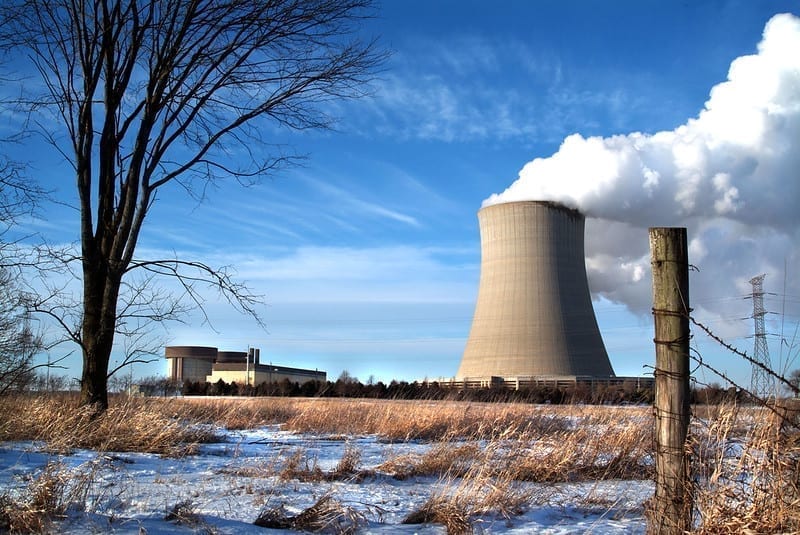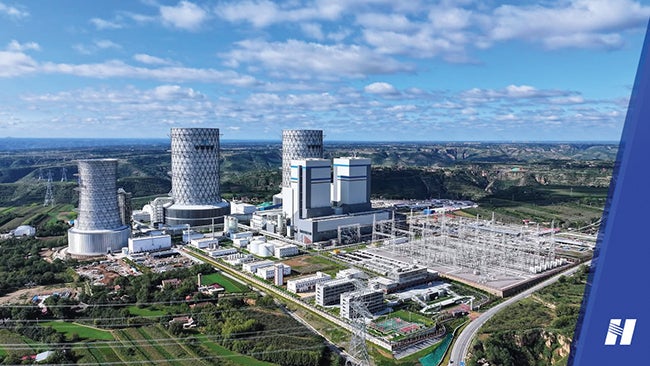Georgia wasn’t looking for an award or recognition when we set out to build new nuclear reactors in our state. Yet, we now find ourselves as the last team on the field as our commissioners unanimously voted to move forward with a new cost and schedule for the Plant Vogtle new nuclear units—keeping the project alive just months after South Carolina walked off the field. This “experiment” here in Georgia is all that is left of the nuclear renaissance bludgeoned by cheap natural gas prices and a Japanese tsunami. Here is why I wanted to move forward.
Plant Vogtle is one of two Georgia nuclear sites. The plant’s existing two units came online in 1987 and 1989 amid cost overruns and controversy, and now serve the state’s energy consumers as the crown jewel of our generation fleet. Disappointingly, Units 3 and 4 are running behind schedule and set to cost substantially more than we anticipated—almost double. The success of the first two units clearly played a role in us moving forward, with the hindsight that the addition of two more units most likely will work out. But there are other reasons to move forward.

Let’s start with low rates. Cheap electricity and a reliable grid are what companies looking to relocate to a new state often look for. As commissioners, we froze Georgia Power’s base rates in 2013, and they will not go up until 2019. Those aforementioned Vogtle reactors built in the 1980s now provide the cheapest power in the state. The federal Bureau of Labor Statistics shows the median nuclear plant operator earns an average annual wage of $91,170, so the 800 permanent jobs created by our project will go a long way to boost the Georgia economy. Subtract the 6,000 temporary construction jobs now on-site at the plant and it would be like pulling $115 million in annual payroll from the regional economy.
A Diverse Energy Supply
Diversifying the energy supply also makes sense. After all, no one knows what the future holds. The U.S. could institute a carbon tax, as President Obama envisioned, or even regulate frackers out of a job. No matter what happens, nuclear reactors will ensure Georgia’s electric rates stay competitive.
Continuing the project also will keep the U.S. from completely forfeiting its nuclear leadership. As other states have decommissioned reactors without replacing them, the world has begun looking to nations like China and Russia. The World Nuclear Association reports that China is increasing its nuclear generation capacity 70% by 2020–2021 and will surpass U.S. output by 2030. The only way for America to continue setting international standards for nuclear safety and security is to invest in reactors and technology. China is anxious to export its technology around the world, thereby locking countries into committed long-term, reciprocal trade relationships disadvantageous to U.S. interests, jobs, and exports. We cannot afford to see this happen.
Finally, let’s look at national security. Our reactor technology gives American naval vessels a distinct advantage. The U.S. has 10 aircraft carriers and dozens of submarines powered by nuclear fuel. These vessels can go years without refueling. But the Navy program relies on a strong commercial nuclear industry to provide steady employment and training, and to keep the supply chain humming.
Planning for the Future
While Georgia’s two new reactors are moving forward, I understand the angst surrounding such massive construction projects, as well as the concern about their costs. That is why my recent motion to move forward included penalties for Georgia Power, if the timetable is missed. I know that Yucca Mountain, where the nuclear waste would ultimately be stored, is only now emerging from limbo. And I do value renewables like solar. But the job of a state utility commission is to plan for the future. That is why we are pressing ahead—despite fears fanned by the 2011 tsunami in Fukushima, Japan, and despite the financial meltdown that put the reactor designer, Westinghouse, in bankruptcy last year.
Let’s be honest. It was the bankruptcy of Westinghouse, the prime Vogtle project contractor and reactor designer, that has put us in the pickle we are in. All the protections we had built into their contract were made null and void by their self-serving action to walk away from their contract with Georgia Power. However, it is important to note that Toshiba, Westinghouse’s parent company, has paid a significant penalty for Westinghouse’s failure—$3.68 billion, or 40% of the original contract price. This payment will reduce the cost of the project, and that benefits customers. That payment made a difficult vote to move forward a little easier.
I have appreciated the feedback from many in the communities we represent—and especially in the nuclear energy community at large—urging us to complete this important project. Doing so will help Georgia continue to be the best place to do business in America, and hopefully spur some other states to follow our lead. ■
—Tim Echols is vice chair of the Georgia Public Service Commission.


